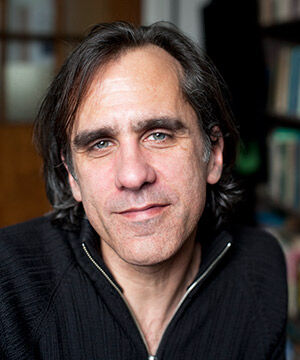1.
Shortly before I died,
Or possibly after,
I moved to a small village by the sea.
You’ll recognize it, as did I, because I’ve written
About this village before.
The rocky sliver of land, the little houses where the fishermen once lived—
We had everything we needed: a couple of rooms
Overlooking the harbor,
A small collection of books,
Paperbacks, the pages
Brittle with age.
How, if I’d never seen
The village, had I pictured it so accurately?
How did I know we’d be happy there,
Happier than ever before?
The books reminded me of what,
In our youth,
We called literature.
2.
The sentences I’ve just written
Took it out of me.
I searched for the words,
And I resisted them as soon as I put them down.
Now, listening to them again, what I hear
Is not so much nostalgia
As a love of beginning. A wish
Never to be removed
From time but
Always to be immersed in it, always looking forward,
Never behind.
The boats come in,
The boats go out—
3.
After a routine ultrasound revealed a fifteen-centimeter mass, my left kidney was removed robotically on February 12th. Fifteen months later, nodules were discovered in my lungs and peritoneum. Two subsequent rounds of therapy failed to impede their growth, so I enrolled in a trial, a treatment not yet FDA approved.
Shrinkage of the tumors was immediate, as was the condensation of my sense of time: moments in my youth once distant, even irrelevant, felt burningly present. Didn’t everyone, my parents, my grandparents, grow old before they died? Then what about Tony? What about Russ? Hadn’t their lives, though long past fifty, only begun?
I walked down High Street to the harbor, though when I say walked I mean imagined; I hadn’t been there yet.
4.
The Branch Will Not Break.
A Cold Spring.
Leaflets.
The Lost World.
The Moving Target.
Nightmare Begins Responsibility.
Rivers and Mountains.
The Story of Our Lives.
Untitled Subjects.
Water Street.
5.
Of ghosts pursued, forgotten, sought anew—
The trees are full of them.
From trees come books, that, when they open,
Lead you to expect a person
On the other side:
One hand having pulled
The doorknob
Towards him, the other held out, open, beckoning you forward—
6.
Ash-blond, tall, a sweater
Knotted by its sleeves around his neck,
A boy is leaning on a bicycle. Deftly when she reaches him
A girl slips to the grass, one hand straightening
Her skirt around her thighs, the other
Tugging at the boy, who remains
Standing, to sit beside her.
Their heads are close
Enough to be touching;
Their lips are still—
A book is the future.
You dream
Of reading it, and once you’ve finished, it’s a miracle, you know the past.
The sky fills with stars. The sun
Climbs every morning
Over Watch Hill, dropping behind the harbor at dusk.
Water Street runs past
Church and Union,
Harmony and Wall,
Until it crosses Omega, by the sea.
